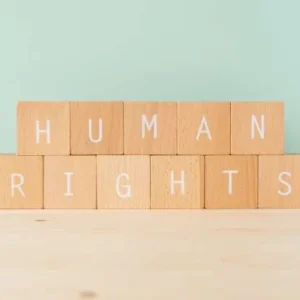The OSCE Office for Democratic Institutions and Human Rights (ODIHR) has raised serious concerns over the escalating human rights situation in Georgia following the country’s recent local elections. Amid reports of violence, detentions, and increasing restrictions on civic space, the organization has called on Georgian authorities to respect the rights to peaceful assembly and freedom of expression, and to ensure that civil society can operate without fear or interference.
“Peaceful protesters in Georgia continue to be detained, sentenced, and fined for exercising their rights,” said Maria Telalian, ODIHR Director. “The authorities have an obligation to uphold their OSCE human rights commitments and international obligations, including respect for the right to peaceful assembly. Civil society and human rights defenders must not be targeted—their work is vital to a vibrant democracy.”
The ODIHR statement follows a period of growing political tension and state pressure on non-governmental organizations. The recently introduced “foreign agents law” has drawn international criticism for restricting the activities of civil society organizations, limiting their freedoms of association, expression, and assembly. ODIHR reiterated its previous legal review, which found that the legislation poses “serious concerns” and urged the Georgian government to repeal it immediately.
In recent months, the detention of peaceful protesters, human rights defenders, and opposition politicians, along with heavy fines imposed for participating in demonstrations, has raised alarms about the country’s commitment to its international human rights obligations. ODIHR emphasized that law enforcement must avoid the use of force during peaceful assemblies and instead facilitate dialogue and communication. If force is used, it must always be lawful, necessary, and proportionate.
ODIHR also expressed disappointment that the invitation to observe Georgia’s local elections was issued less than a month before election day, leaving insufficient time for credible monitoring. This, the office noted, deprived Georgian citizens and institutions of an impartial and comprehensive assessment of the electoral process.
All OSCE member states, including Georgia, have pledged to uphold democratic principles and protect the essential role of civil society. Reaffirming its support, ODIHR stated that it remains ready to engage with Georgia and assist the government in fulfilling its OSCE commitments—particularly regarding the rule of law, human rights, and the right to peaceful assembly.
In a time of mounting political strain, the message from ODIHR is clear: Georgia’s democratic future depends on its ability to protect dissent, respect fundamental freedoms, and preserve space for civil society to thrive.






